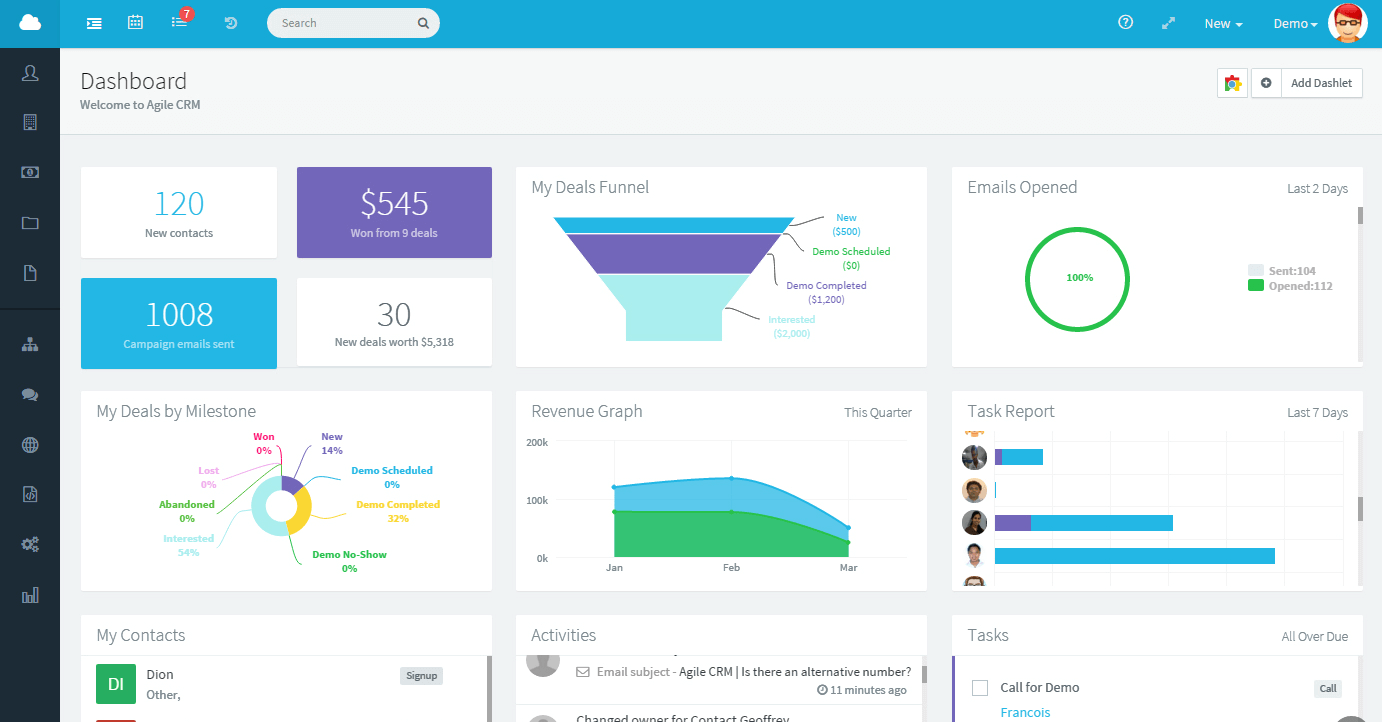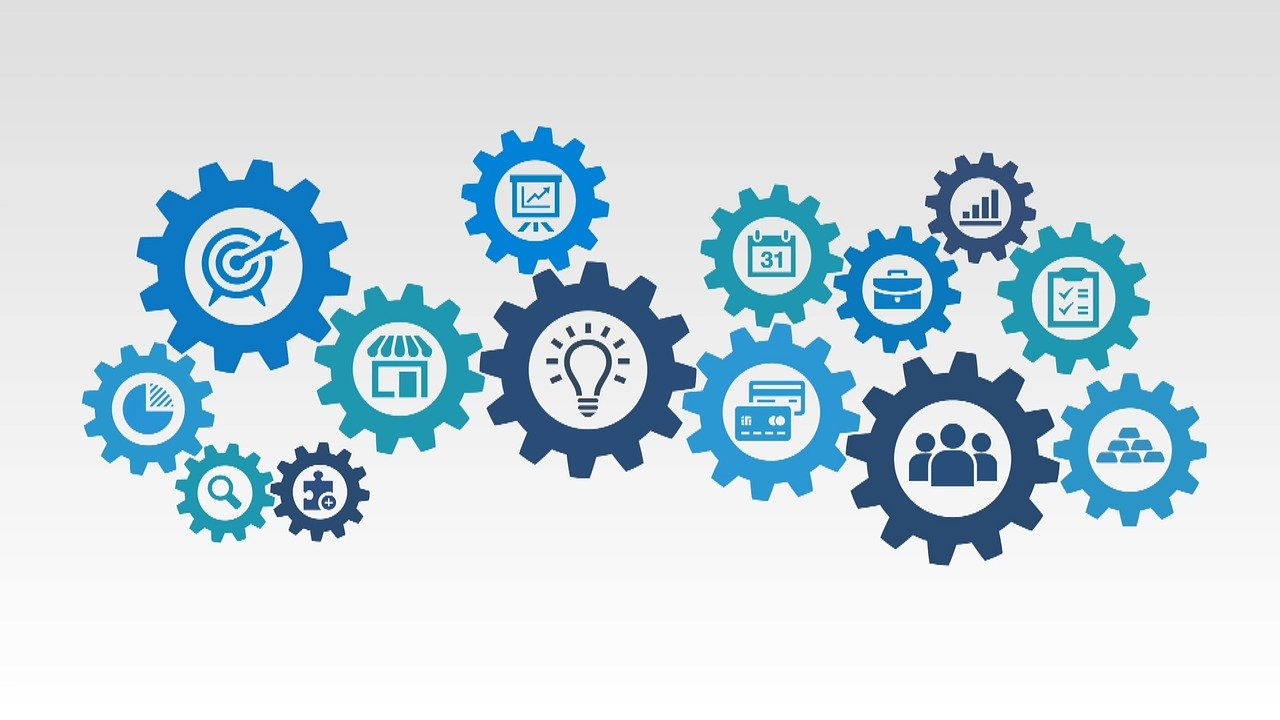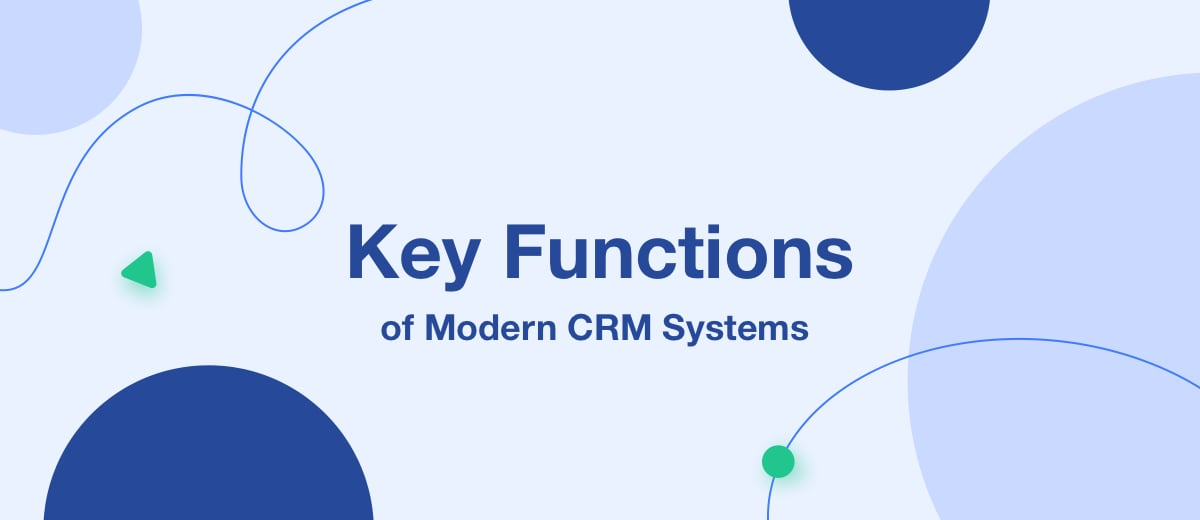CRM platform is an important or even essential tool for modern enterprises that helps manage many business processes using a single interface. The first systems of this kind appeared in the 90s and provided the basic set of functions for sales and customer base management.
Content:
1. Lead management
2. Contact management
3. Mailing management
4. Reporting and analytics
5. Marketing and sales management
6. Work process automation
7. Document and file management
8. Prediction
9. Conclusion
CRM capabilities have expanded significantly since then. Some of them include over 200 different functions divided into categories and subcategories. There are universal and specialized options designed for specific tasks or activity areas. In this article, we would like to present a selection of the most popular functions of CRM systems and their benefits.
Lead management
Lead generation is the first and one of the most important steps in the sales cycle, so you should pay maximum attention to it. CRM's lead management tools help you capture leads from different sources, including websites, calls, emails, social networks, messengers, and more. A well-configured and correctly applied setting will make it possible to capture every single lead, passing each of them through the sales funnel.
Lead management helps generate leads, evaluate them and conduct lead scoring. It also allows you to track the progress of leads passing through the sales funnel and use tools to warm up and nurture leads. When choosing a CRM platform, you should carefully consider its functionality in the lead management field, and find out if there are lead analysis and indicator visualization options, as well as whether it is possible to customize the lead scoring and qualification settings.
Contact management
Customer base management is another key function of a CRM system. It should contain as much information as possible about the company's customers, including contact information, data on orders/transactions/meetings/requests, as well as all possible interactions between the company and its customers. It is important that CRM allows you to save all user activity in the database and provides options for quickly searching and filtering this data.
The contact management module as a part of the CRM platform may include additional options like the built-in calendar that can be helpful to schedule appointments and other events. Here you can also assign responsible managers, set up reminders, add accounts, and make connections between contacts.

Mailing management
Email marketing is still considered one of the most effective promotional tools of any product or service. Therefore, all modern CRM systems should include the option of preparing and conducting email campaigns, or at least offer options for integration with third-party mailing services and importing contacts from Gmail, Outlook, or other email clients.


Email marketing tools allow you to conduct targeted and bulk mailings, schedule and configure targeted campaigns, track incoming emails, etc. With these tools, you can keep detailed statistics on key mailing parameters (deliverability, openings, referrals, etc.) and analyze their effectiveness. They also help automate mailings using different triggers like birthdays, holidays, targeted actions on the site, etc. And the availability of many thematic letter templates will significantly speed up and simplify the preparation of mailings.
Reporting and analytics
Reporting and analytics tool is another key module that any modern client management software cannot go without. It is designed to analyze all the key areas of business activity: marketing, sales, emails, customer service, etc. They allow you to monitor the important metrics in real-time: conversion, revenue, and profit, customer retention rate, marketing campaign effectiveness, etc.
Another important advantage of CRM platforms is a function for visualizing analytic data in the form of graphs, charts, tables, or other graphical content. Reports and dashboards will be helpful to keep your finger on the pulse of the business and quickly track any changes. The obtained information will be useful for assessing the company activity results and planning its further development.
Marketing and sales management
Every modern CRM platform must provide functionality for segmenting and warming up leads, preparing and launching marketing campaigns, and assessing their effectiveness. The tools for SMM (social media promotion), content marketing, and marketing campaign automation are of great importance here.
On a separate note are the functions for creating and managing sales funnels, which are usually available in every CRM system. With their help, you will be able to visualize the sales cycle, filter deals, and produce an effect on potential customers using email newsletters or other methods. Equally useful is the option to create multiple sales funnels for different products and compare their performance.

Work process automation
Another important advantage of CRM platforms is the automation of repetitive tasks. This function helps to optimize processes and costs, as well as save time. For these purposes, AI-based software solutions are often used to configure triggers (trigger conditions), entry criteria, and necessary actions.
CRM tools make it possible to automate various operations with leads (capturing, warming-up, etc.), sending emails, generating and sending invoices, etc. With this feature, you will automatically receive notifications about the execution of tasks/processes/stages, or the need to take actions manually.
Document and file management
In addition, modern CRM systems often include cloud storage for documents and other file types that support file download, storage, and other operations like editing, forwarding, setting up sharing for employees or clients, etc. Another useful feature is the file history - the system stores versions of documents or files, which allows you to track all changes applied to them. As a rule, different CRM platforms offer users different cloud storage capacities, which often depend on the tariff plan or service package they choose.
Prediction
Using advanced technology like AI or machine learning, the prediction module as part of the CRM system can be helpful to plan the company development more efficiently. Based on current business indicators it allows you to calculate sales, profit, or other metrics in the future. Users can customize prediction functions by testing various scenarios. Thus, it will improve the prediction accuracy taking into account business specificity. The prediction engine is not limited to calculating sales or profits, it can also be used to estimate ROI and other business metrics.
Conclusion
CRM platforms are truly the most important digitalization tool for modern business, as they greatly simplify, accelerate and optimize many activity areas of companies. In particular, an effective CRM is a multifunctional system that manages leads, marketing campaigns, deals and sales, a contact database, emails, reporting, and analytics. It also helps automate routine work processes, predict important business metrics, store and manage documents and files.
All of the CRM systems we have named have broad functionality. But their capabilities can be further expanded thanks to the SaveMyLeads service. You will never again have to transfer data from Facebook leads manually, at the risk of forgetting something or making a mistake. New contacts and tasks will be created in your CRM automatically, immediately after a potential client has filled out a lead form on a social network. Take your business automation to the next level! Sign up for free trial!
